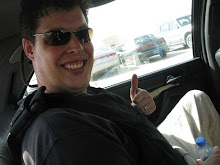I was fortunate to be able to attend this year's World Press Freedom Day. Every year, May 3rd is a date which celebrates the fundamental principles of press freedom; to evaluate press freedom around the world, to defend the media from attacks on their independence and to pay tribute to journalists who have lost their lives in the exercise of their profession.
The video below is the montage of past UNESCO/Guillermo Cano World Press Freedom Prize winners congratulating this year's winner, Ahmad Zeidabadi (in absentia) from Iran. According to Secretary of State Hillary Clinton, "Mr. Zeidabadi, along with his fellow activists, have been banned for life from political or civic activities. This award is a recognition of his legitimate work and the work of the numerous other Iranian journalists who are currently jailed for their courageous efforts to forge a new path for Iran – one where every citizen has the right to express themselves free from persecution or violence."
The video below is the montage of past UNESCO/Guillermo Cano World Press Freedom Prize winners congratulating this year's winner, Ahmad Zeidabadi (in absentia) from Iran. According to Secretary of State Hillary Clinton, "Mr. Zeidabadi, along with his fellow activists, have been banned for life from political or civic activities. This award is a recognition of his legitimate work and the work of the numerous other Iranian journalists who are currently jailed for their courageous efforts to forge a new path for Iran – one where every citizen has the right to express themselves free from persecution or violence."





